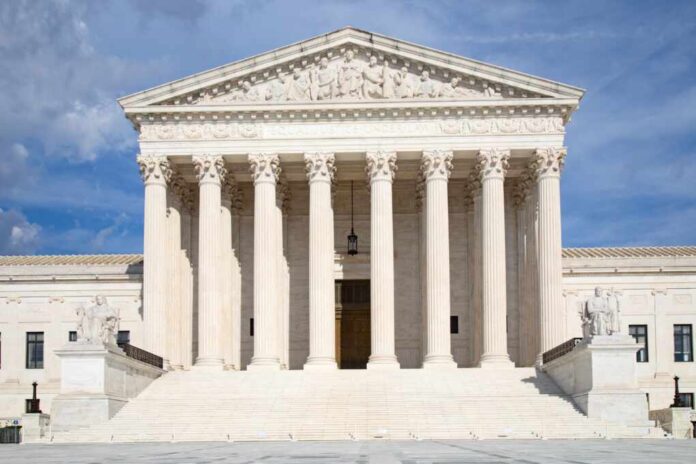
The Supreme Court has reversed the 1984 Chevron v. Natural Resources Defense Council decision, a pivotal ruling that had mandated judicial deference to federal agencies when laws were ambiguous. The recent 6-2 decision, spearheaded by Chief Justice John Roberts, stated that courts must now use independent judgment to determine if an agency has acted within its statutory limits.
This case arose from disputes involving Rhode Island and New Jersey fishermen who challenged a National Oceanic and Atmospheric Administration (NOAA) rule. The rule required fishermen to pay $700 per day for an “at-sea monitor,” a cost that fishermen argued threatened their livelihoods. The court found that this requirement exceeded NOAA’s authority granted by Congress.
“Chevron is overruled,” Chief Justice Roberts wrote for the majority. “Courts must exercise their independent judgment in deciding whether an agency has acted within its statutory authority, as the APA requires. Courts must respect the delegation while ensuring that the agency acts within it.”
Justice Clarence Thomas supported this decision, emphasizing that Chevron deference allowed the executive branch to overstep its constitutional powers. “Chevron deference was ‘not a harmless transfer of power,’” Thomas wrote. “It improperly strips courts of judicial power by simultaneously increasing the power of executive agencies.”
The decision has significant implications for how federal agencies will operate in the future. The fishermen who brought the case forward claimed that the NOAA’s rule resulted in a 20% revenue loss due to the required at-sea monitors. This ruling has been welcomed by many in the fishing industry who feel burdened by regulatory overreach.
Jerry Leeman, CEO of the New England Fishermen’s Stewardship Association, expressed gratitude for the decision, stating, “Federal officials usually ignore the well-grounded concerns American fishermen share about overregulation. We are grateful to the Supreme Court for bucking this trend.”
In contrast, Justices Elena Kagan and Sonia Sotomayor dissented, arguing that Chevron has been integral to the functioning of modern government. Kagan emphasized that courts lack the expertise of agencies and should defer to them on regulatory matters. “Chevron is about respecting that allocation of responsibility—the conferral of primary authority over regulatory matters to agencies, not courts,” she wrote.
As this ruling changes the legal landscape, it signifies a shift in the balance of power, reinforcing the judiciary’s role in interpreting laws and limiting the scope of executive agencies.





























